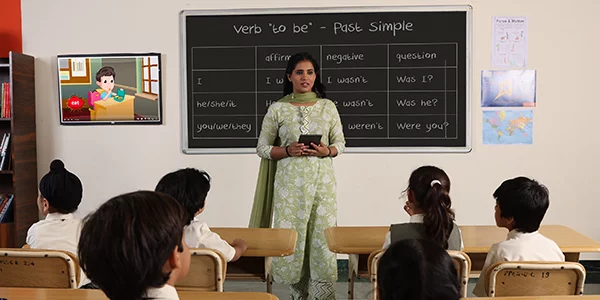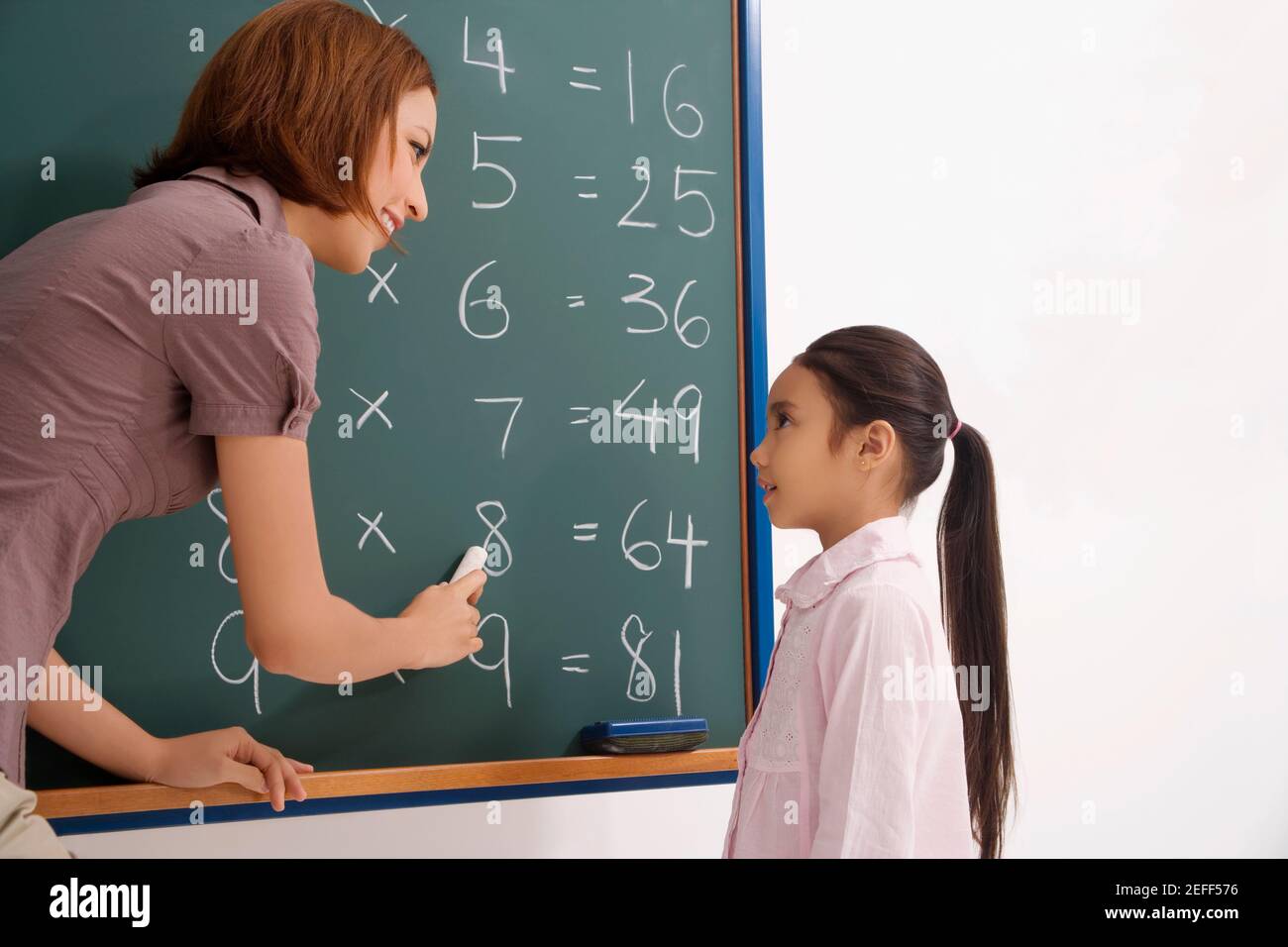Enroll in Primary Science Tuition Singapore for a Strong Science Foundation
Enroll in Primary Science Tuition Singapore for a Strong Science Foundation
Blog Article
Checking Out the Various Mentor Methods in Main Scientific Research Education Today
Inquiry-based discovering, hands-on experiments, and the combination of technology are redefining exactly how teachers involve young minds. Furthermore, joint strategies and separated direction are being used to provide to the varied requirements of trainees, improving both interaction and understanding.
Inquiry-Based Discovering
Inquiry-Based Understanding (IBL) is an instructional technique that motivates trainees to discover clinical ideas with doubting, investigation, and hands-on testing. This method emphasizes the duty of pupils as active participants in their knowing, promoting crucial thinking and analytic abilities. By involving with real-world questions, students come to be determined and interested, which boosts their understanding of scientific concepts.
In IBL, instructors serve as facilitators, guiding pupils as they browse their queries rather than supplying info straight. This student-centered technique enables differentiation, suiting various learning rates and styles. Pupils establish skills in formulating theories, developing experiments, and analyzing information, which are crucial for clinical literacy.
Furthermore, IBL fosters cooperation amongst students, motivating them to share ideas and searchings for. This cumulative query promotes social abilities and a feeling of neighborhood within the classroom. The process of questions motivates strength, as students discover to welcome failure as a stepping rock towards understanding.
Hands-On Experiments
Hands-on experiments are a crucial part of efficient scientific research education, matching the concepts of inquiry-based learning. These experiments allow students to involve straight with clinical concepts, fostering a deeper understanding with experiential discovering. By controling products and observing results, young students can realize abstract concepts in concrete ways.
Such activities advertise crucial reasoning and problem-solving skills, as trainees hypothesize results, conduct experiments, and examine results. This process encourages them to ask questions, refine their understanding, and develop a scientific mindset. Hands-on experiments can be customized to diverse knowing styles, guaranteeing that all students have the opportunity to engage meaningfully with the web content.
Moreover, hands-on experiments often encourage partnership among peers, promoting teamwork and interaction abilities. Operating in teams allows trainees to share ideas, discuss findings, and pick up from one an additional, which improves their overall instructional experience.
Integrating hands-on experiments right into the key science educational program not just enhances the discovering environment however likewise grows a lifelong interest in scientific research. By actively joining their education and learning, trainees are more most likely to establish an enthusiasm for scientific questions that prolongs past the class.

Modern Technology Integration
Incorporating technology into main science education and learning has actually become significantly essential in fostering student interaction and enhancing discovering results. Using electronic devices, such as interactive simulations, digital labs, and educational software application, supplies trainees with chances to check out scientific principles in cutting-edge means. These sources facilitate a much deeper understanding of complicated topics by enabling learners to visualize and manipulate variables that would certainly be not practical in a traditional class setup.
Moreover, technology assimilation urges customized learning experiences. Pupils can proceed at their very own speed, reviewing difficult principles through multimedia resources, which provide to various knowing styles. This adaptability not just supports private growth but additionally cultivates a sense of autonomy in students.
Furthermore, innovation acts as a bridge to real-world science, connecting students with present research and specialist contributions. Access to you could try this out scientific journals and online databases widens trainees' perspectives on clinical inquiry and cultivates vital thinking skills.
Collaborative Learning
Collective understanding plays an essential role in key science education and learning by promoting synergy and communication abilities among trainees. This approach encourages students to work with each other, share knowledge, and take part in problem-solving, which improves their understanding of clinical concepts. By joining group tasks, trainees learn to verbalize their ideas, pay attention to diverse point of views, and negotiate options, every one of which are vital abilities in both academic and real-world contexts.

Research study indicates that collective understanding can cause boosted motivation and interaction in scientific research subjects, as trainees find pleasure in common experiences (primary science tuition Singapore). Additionally, this technique prepares pupils for future collaborative ventures, equipping them with the skills needed for effective team effort in greater education and learning and professional atmospheres. Inevitably, embracing joint knowing in primary scientific research education can substantially enrich the discovering experience and advertise a deeper understanding of clinical questions
Distinguished Direction

Distinguished guideline can manifest in different means, such as varying the web content, processes, or products of discovering. Instructors might make use of tiered projects that supply differing degrees look at this now of complexity, enabling trainees to function at their corresponding readiness levels. In addition, flexible grouping approaches can facilitate collaboration among pupils with various abilities, fostering peer discovering.
Analysis plays a vital duty in this approach, as it informs direction and assists instructors recognize each student's one-of-a-kind requirements. Developmental evaluations, such as observations and quizzes, can guide teachers in adjusting their approaches to boost learning end results. primary science tuition Singapore. Inevitably, by implementing distinguished instruction in key scientific research education and learning, instructors can grow a much more fair and effective knowing environment, encouraging all trainees to reach their complete capacity in comprehending scientific sensations
Verdict
In recap, the diverse teaching methods in main science education and learning, consisting of inquiry-based learning, hands-on experiments, technology assimilation, collaborative learning, and distinguished guideline, jointly add to a more reliable discovering environment. These methods promote important thinking, problem-solving abilities, and a deeper comprehension of clinical ideas. By implementing these strategies, teachers can create interesting and helpful class that attend to the different needs of students, ultimately cultivating a lifelong passion in science and boosting academic achievement.
Inquiry-Based Understanding (IBL) is a pedagogical technique that encourages trainees to discover scientific ideas through wondering about, investigation, and hands-on trial and error.Collective understanding plays a vital function read this post here in key science education and learning by fostering team effort and interaction skills amongst pupils.Research suggests that joint learning can lead to boosted motivation and involvement in science topics, as trainees discover enjoyment in shared experiences.In fostering an inclusive knowing atmosphere, set apart instruction emerges as a crucial approach to accommodate the varied requirements and capabilities of trainees in key scientific research education. Ultimately, by executing set apart guideline in key scientific research education and learning, educators can cultivate a much more effective and fair learning atmosphere, equipping all pupils to reach their complete possibility in recognizing clinical phenomena.
Report this page